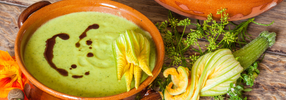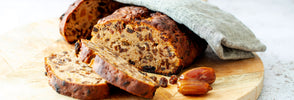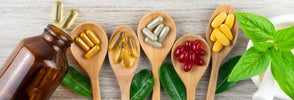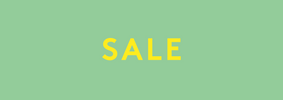
Relaxing sleep
Histamine plays a central role in among other neurotransmitters for the sleep-wake regulation of our body. Histamine is particularly active during the waking phases and is naturally increased there by part of the hypothalamus in the brain, the tuber cinereum.
Our waking state is therefore largely dependent on the body's histamine.
With histamine intolerance, the body already has more histamine than in healthy people. The logical conclusion is therefore: the body is even in a “wax phase” in the evening because the mights and opponents of Histamine such as melatonin or Gaba (Gamma amino -nose acid) are difficult to arrive against the whole histamine. In addition, an excess of histamine leads to an increased distribution of adrenaline; So the pulse drives up and the body is in the alarm state. This explanation also makes it clear why many antihistamines make you tired during the day. They inhibit the histamine and thus our "guard".
As a result, those affected often sleep in histamine intolerance and / or / or suffer from one and sleep problems. In addition, with more histamine in the body you sleep more restless, less deep and it takes much longer until relaxation occurs. The internal clock can also "break" because the body is actually not used to such high histamine concentrations at night. This can also create sleep and waking times at unusual times. For some, lack of sleep is even a trigger, which then causes stronger symptoms during the day.
Unfortunately, the histamine level of HIT sufferers cannot always be reduced from now on - and we know how difficult it is to have its symptoms under control. Which factors can then still be influenced in order to achieve more relaxing and relaxed sleep? And what are additional causes of poor sleep? We'll show you!
Properties of good sleep
Sleep occupies an important part of our life. If we assume a lifespan of 75 years, we sleepy almost a third lifetime. Our body also needs this time to relax and relax. Because no life is possible without sleep
Science has therefore determined characteristics or attributes that assess the quality of sleep overall:
- Sleep efficiency - efficiency (has sleep actually relieved my tiredness?)
- Polluting - Duration until you fall asleep
- Duration - Total duration of sleep
- Interruptions / Wake after sleep onset (Waso) - duration and frequency of renewed watch phases after falling asleep
Based on these factors, you can now think about and define: Is my sleep not good because I sleep too short (3rd)? Or do I judge my sleep as bad because I get awake so often at night and don't sleep through (4th)? This assessment is important to get closer to the causes of your lack of sleep.
What exactly affects my sleep and what can I change?
Environmental factors
🔸Screen time
Even if it is difficult: try to put the smartphone away earlier in the evening and switch off the TV and the console earlier. As is now known, the blue lights broadcast from the cell phone can keep us wake up for longer and then prevent us when you fall asleep. If necessary, also set the night mode in good time, in which your cell phone display becomes slightly yellowish from sunset and releases less blue light. The formation of melatonin, a fabric that makes us tired, is also inhibited by light. As a result, it is also important to darken the bedroom sufficiently to promote melatonin production.
🔸Sleeping climate
In a musty, stuffy and much too warm rooms, it doesn't sleep so pleasant, doesn't it? If you live in the attic, you will probably only be able to do something about it in summer. However, if it is possible, you should ventilate vigorously and especially before going to bed and, depending on the outside temperature, weather conditions and (un) sensitivity to drafts, can also leave the window open. Of course, this is clumsy in residence near a busy street. Make sure that you are not exposed to too many environmental pollutants such as exhaust gases, as they can be another histamine trigger. Also avoid essential sleep and fragrance oils or fragrance diffusers, because these can be very irritating with a hit. You can find more about smells than trigger here. (Hyperlink to body care and cleaning agents)
🔸Bedding
Maybe your mattress or pillow is also unsuitable for your needs? Or you may be a nightly switzerland and you actually need a more breathable blanket? Reflect about it and feel into you whether you are satisfied with your equipment or there is a need for adaptation. You will be able to advise you in suitable specialist shops. If you suffer from a house dust mite allergy, then you should get special anti-allergic bed linen. Because with allergies, histamine is always involved.
NUTRITION
🔸The right dinner
Our diet also influences how well we sleep. Have you eaten too much or too heavy in the evening and could you find any rest because of the feeling of fullness and that independently of your HIT complaints? The fact that this is actually related to each other could be scientifically confirmed.
Psychological factors & environment
🔸Relaxation (exercises)
How relaxation exercises have to look, there is no way. It is only important that you find a method that helps you personally. Yoga may be super relaxing for some, you may be released with a meditation of sleep that you listen to with Sleep-Timer, but much better to rest. Here are a few ideas:
- meditation
- Light yoga
- gentle walks
- Breathing exercises
- Relaxation/sleep music with relaxing sounds and noises or a story
- Progressive muscle relaxation
- autogenic training
- A warm bath or shower
- Write journaling / reflect on the day / diary
- Gratitude exercises
- Relaxation tea ... how about that Relaxation tea or Good evening tea From our shop? :)
🔸Routines & rituals
According to Duden, routines are given the ability to carry out one or more activities safely and without having to superior. Routines therefore ensure less "mental load" (mental effort) because you do not have to rethink and control your next actions because they are already automatically. So how about a bed routine? Set a order, e.g. when you always brush your teeth and in which steps in front of it or after that you may bring your child to bed, drink your evening relaxation tea, write diary, and and and ...
🔸Friendship and partnerships & current conflicts
Sometimes you take Conflicts With you to bed, whether from relationships or the job. For example, eternal brooding or perfectionism circle the thoughts and the head does not come to rest. It has been proven that this increases the sleeping slat and decreases the sleeping time. Perhaps it will help you to write down thoughts and unresolved conflicts. Place one Notebook next to your bed And write down essential points. You can then talk to yourself that you have stored your thoughts for tomorrow and will then deal with it tomorrow. To do this and to have enough energy tomorrow, your body must now first charge the battery. PS.: Of course it is always dependent on the type and seriousness of the situation and it is always easier said than done, we know that. If necessary, a psychotherapist can also be consulted.
Physical factors
🔸Physical activity
Sometimes you are lying in bed in the evening and may be drained in the head, but you still have totally fidgety legs and does not feel enough out of physically. This can also lead to less relaxed sleep and difficult to fall asleep.
"Physical activity is every movement that causes energy expenditure and includes everyday tasks such as household activities and the way to work."
With a histamine intolerance, of course, you also have to be careful that physical activity is also mast cell-friendly and in the end you do not trigger histamine release as a stress factor. A separate article on suitable Sport and physical activity You can also find on our blog.
Also note:
"Physical activity, in particular regular sport, can improve sleep quality by influencing adenosine levels and body temperature; if it is exercised too late in the evening, it can lead to sleep disorders because it increases physiological excitement. There are also studies that examine the likelihood of sleep improvement through late physical activity, which are on the induced antidepressant, anxiolytic and Body -warming effects are due to the effect of physical activity on body temperature, because the body temperature falls when falling asleep and physical activity leads to an initial increase in deep body temperature and a faster drop in body temperature.
🔸Cold feet
... are really anything but pleasant and can prevent sleeping. A soothing warm bath, a foot bath or a hot water bottle for the feet can remedy the situation.
🔸Magnesium deficiency, other nutrient defects or medication
Magnesium can have a positive effect on a disturbed sleep. On the one hand, it is involved in the effect of the messenger Gaba, which ensures that the body comes to rest. On the other hand, magnesium relaxes the nerves, the muscles and counteracts muscle cramps that like to appear in the form of calf cramps at night. Therefore, it is also advisable to take magnesium preparations in the evening.
A lack of certain amino acids, a vitamin D deficiency or medication can also lead to sleep problems. It is best to clarify this with your family doctor.
🔸Medicinal herbs
Relaxing herbs such as lavender, passion flower, valerian and chamomile can positively influence your sleep. Drunk one or two cups of tea in the evening or packed into small herbal pillows, these medicinal herbs can be used effectively.
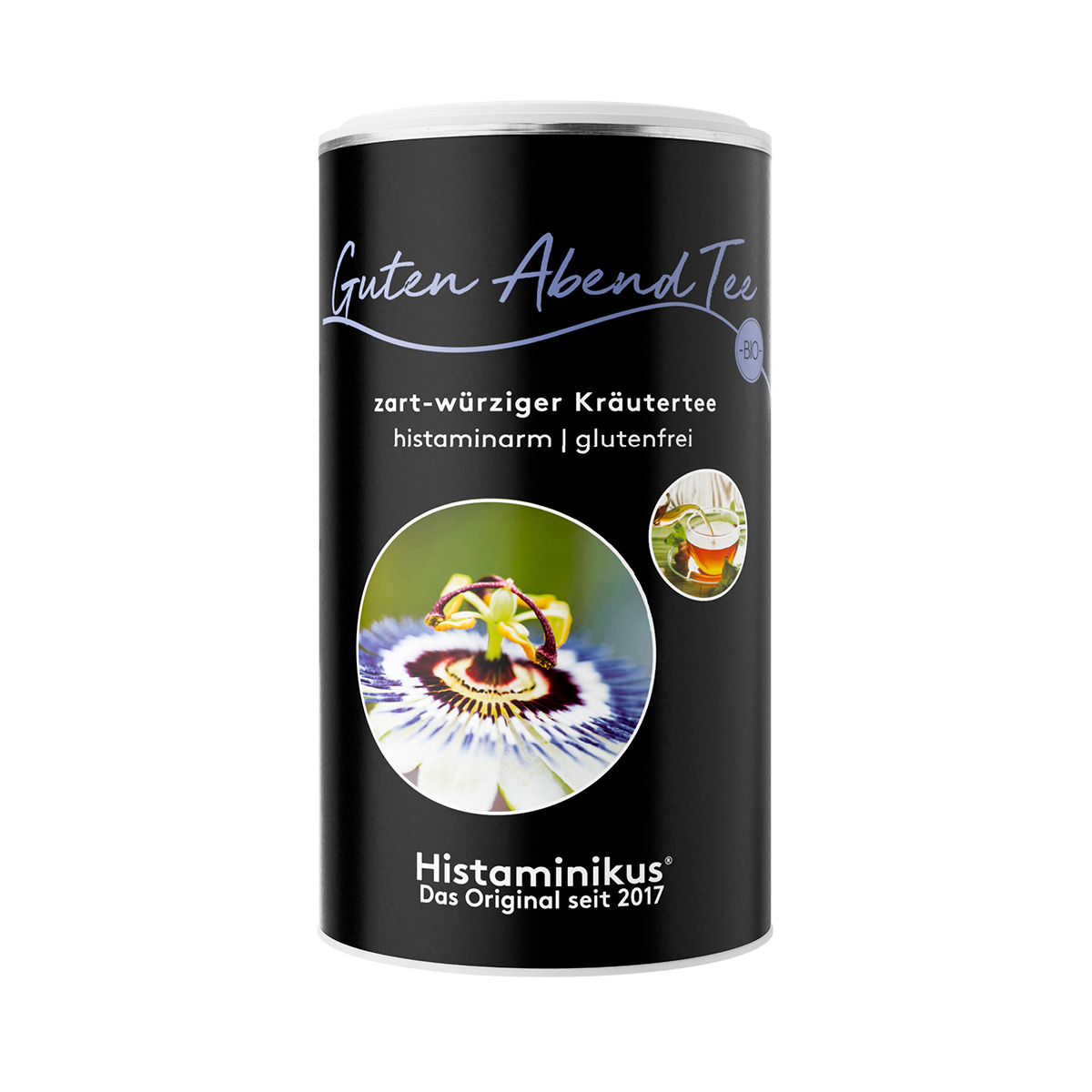
Histamine -low products
Histaminikus
Guten-evening tea organic
4.79 / 5.0
(14) 14 total reviews
Share
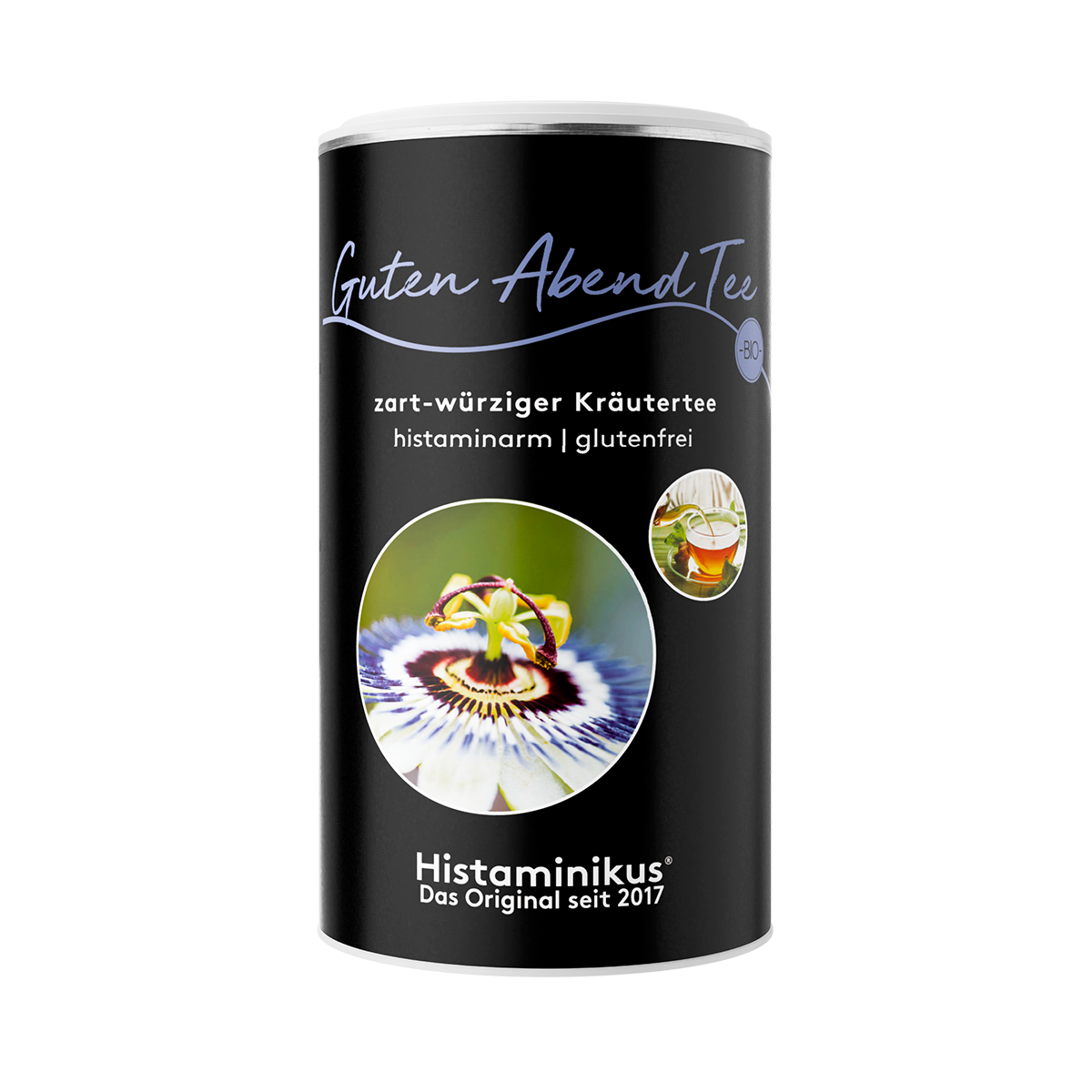
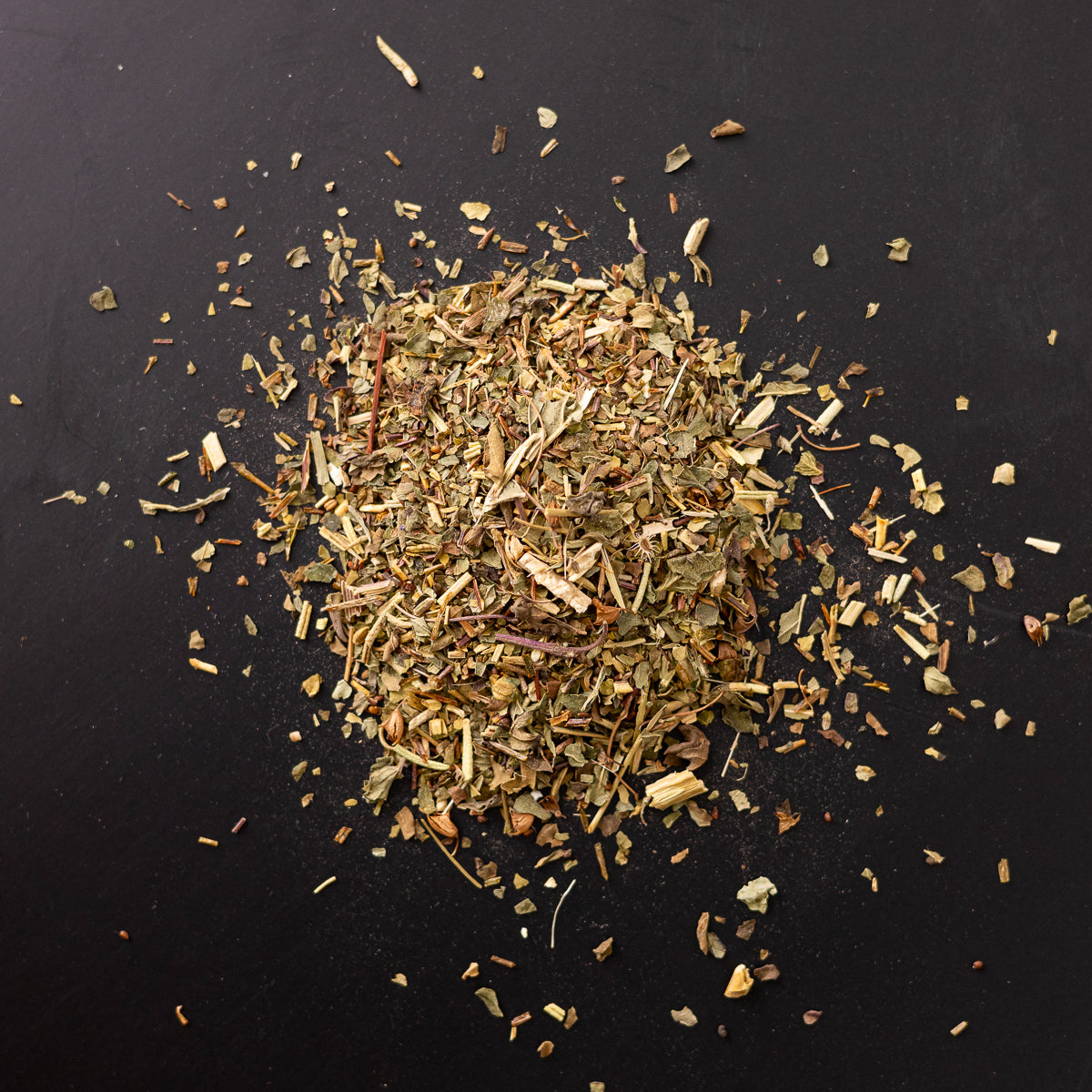
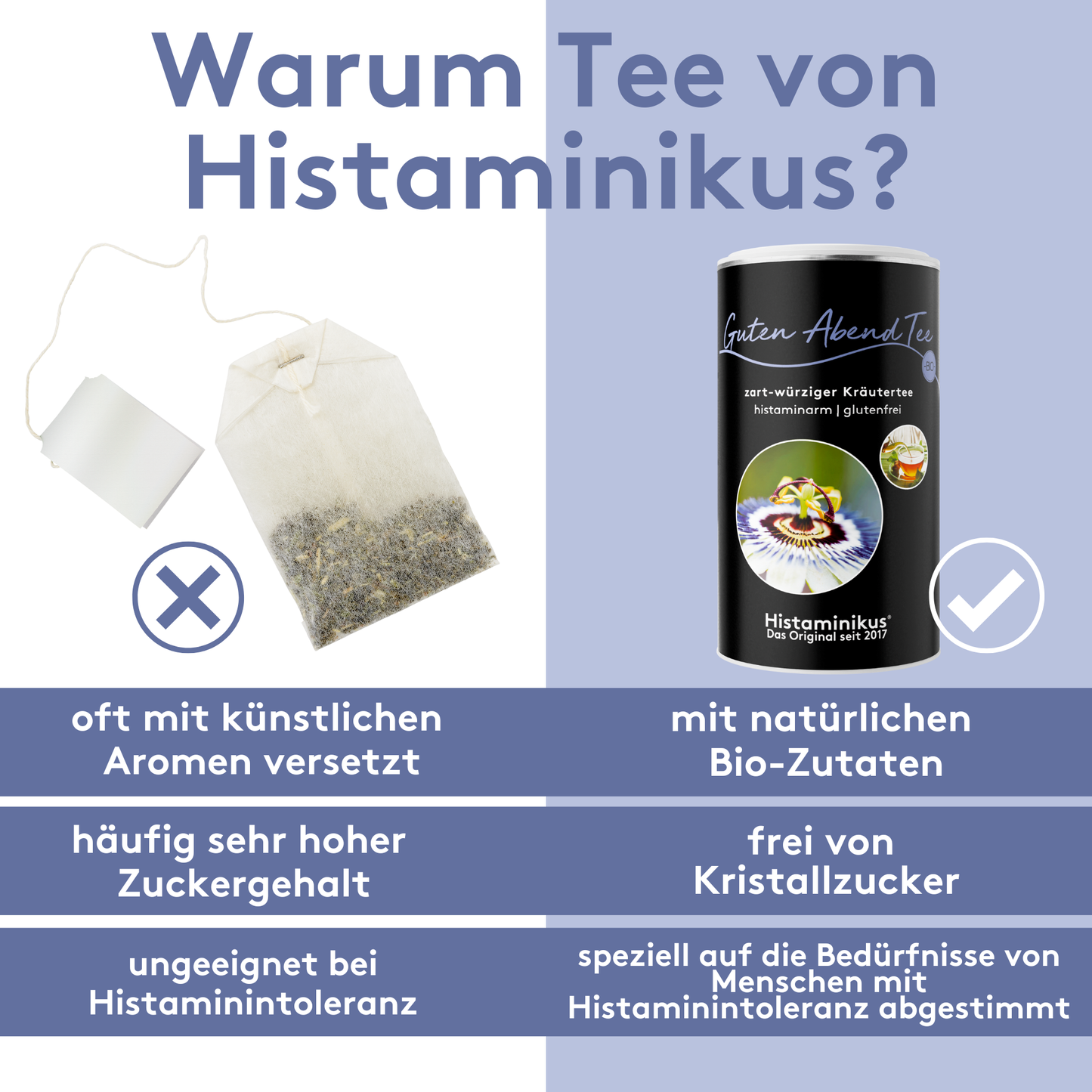
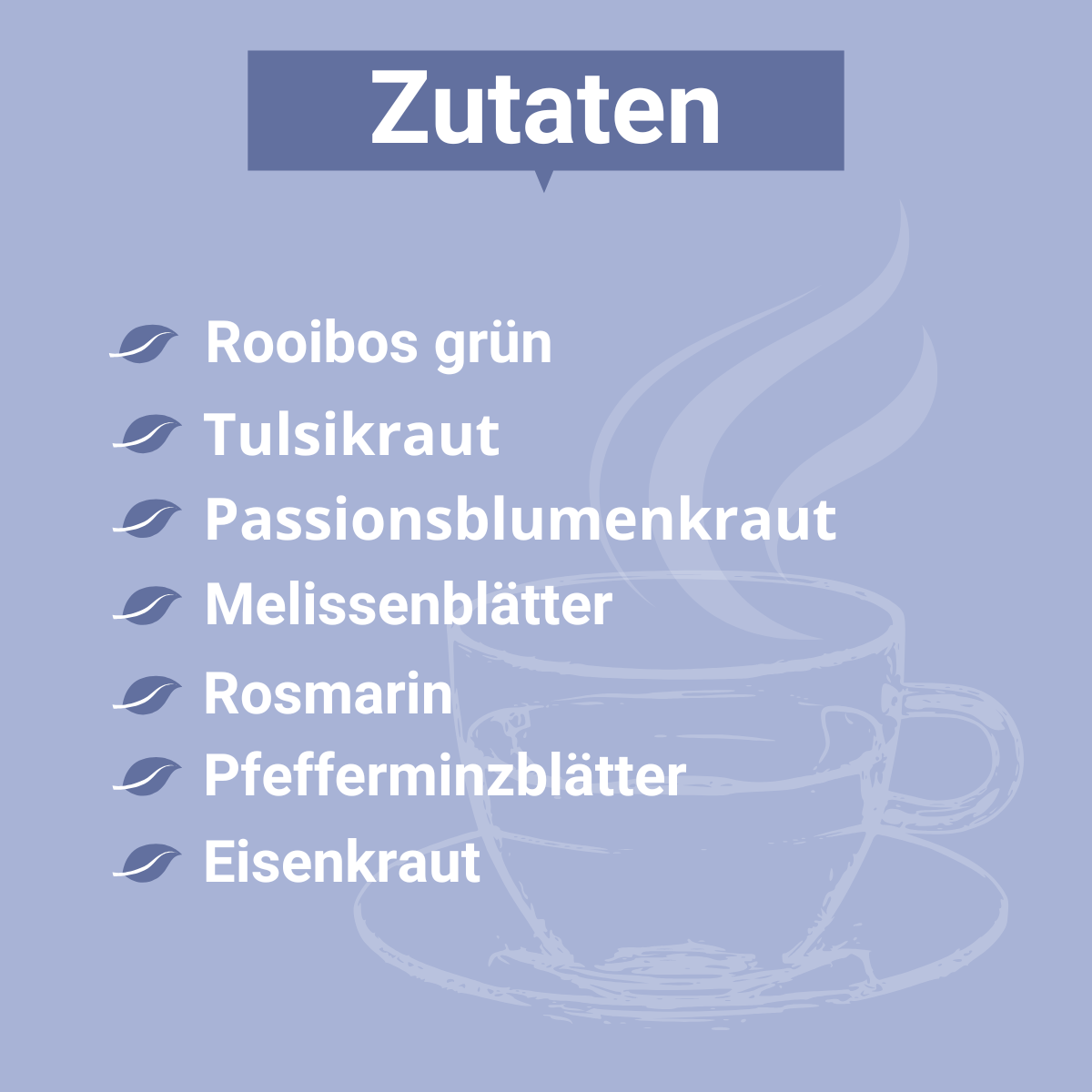
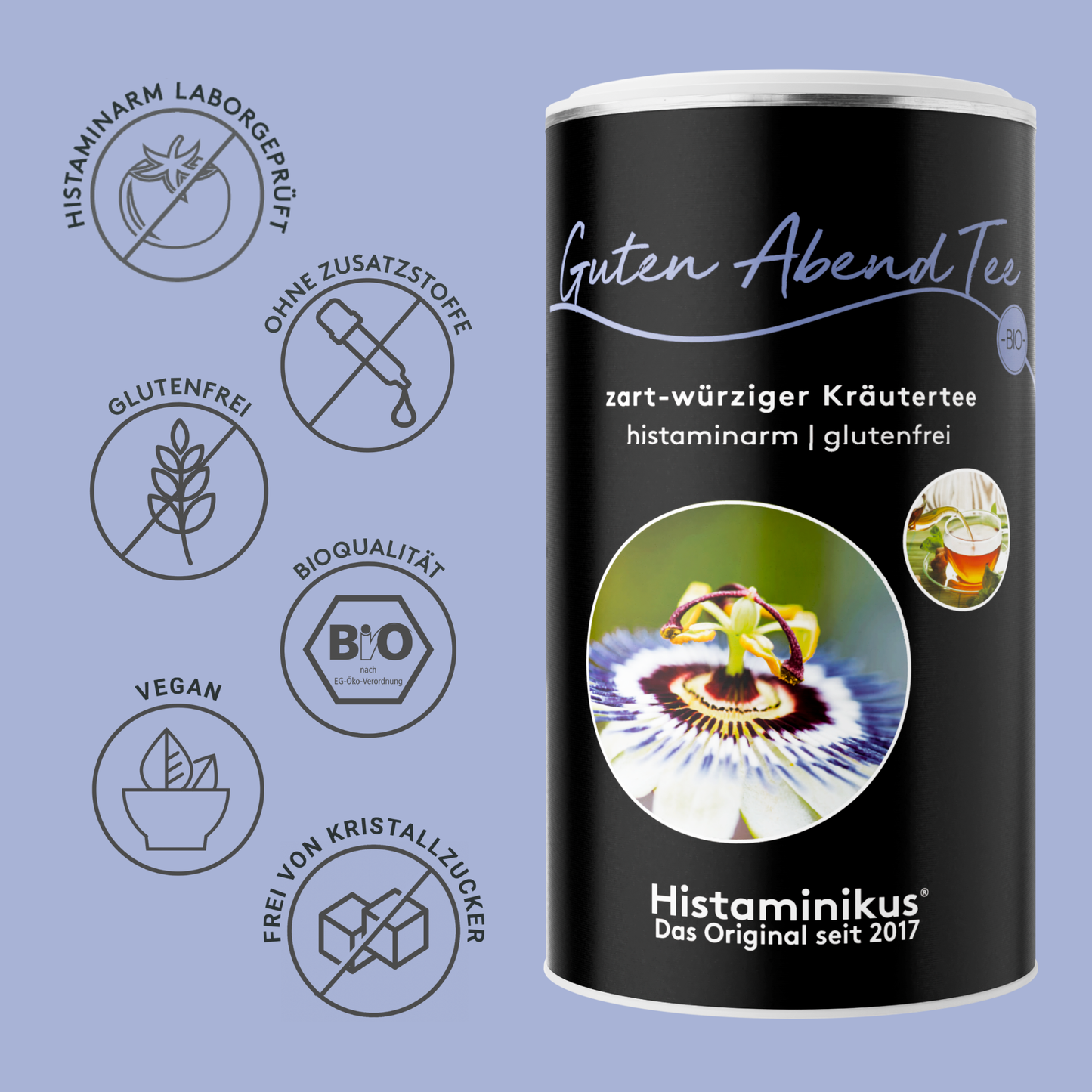
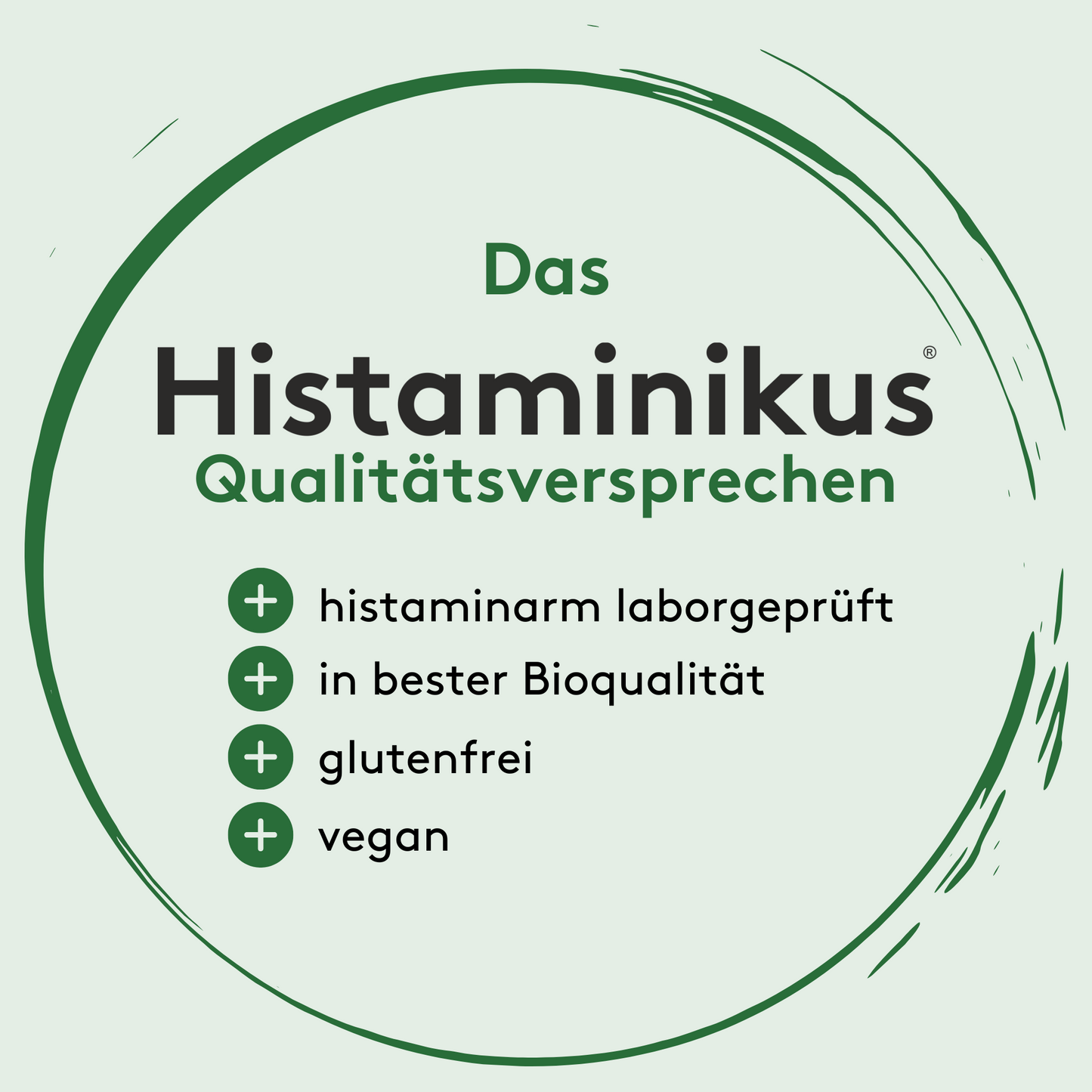
Consequences of relaxing sleep
1. better mental health - Some studies, as well as those from the 60th edition of the journal "Sleep Medicine Reviews" from December 2021, found that there was a direct connection between sleep problems and the occurrence of mental illnesses. In their summary ("Conclusion") In the end they came to the conclusion:
"Overall, the present research results are based on the fact that sleep is in a causal connection with the experience of psychological problems and that sleep therefore represents a practicable treatment goal that can bring significant advantages for mental health, as has also been determined for physical health. Probable diseases.
2. More stable, more balanced blood sugar levels and reduced risk of diabetes
3. stronger immune system and lower susceptibility to infections
4. More stable body weight - In the event of sleep disorders, one would notice that the body releases appetite -enhancing hormones at night so that some people have to eat again or even cravings, which could lead to overweight depending on the amount and type of meal
5. Higher performance and concentration ability a day
6. Positive handling of family and friends
7. "Normal" reflexes
8. More satisfaction
9. Normal/better memory performance
10. Less irritated vagus nerve
11. Natural antihistamine - the histamine level is reduced in a natural way during sleep. Sleep is therefore a natural antihistamine.
👉🏼 If you turn these points into the negative, you have the consequences of lack of sleep and sleep disorders.
Collapsible content
SOURCES
- http://www.chronobiology.ch/wp-content/uploads/publications/Cajochen_Schlafregulation_2006.pdf
- https://www.sciencedirect.com/science/article/pii/S1087079221001416?via=ihub
- https://www.mdpi.com/2072-6643/14/9/1912
- https://onlinelibrary.wiley.com/doi/epdf/10.1111/nuf.12659
- https://www.polyphasic.net/interrupted-sleep/
- https://www.sciencedirect.com/science/article/pii/S1087079214000926
- https://www.spektrum.de/news/besitzt-das-hirn-eine-eigene-innere-uhr/1318537
- https://www.sciencedirect.com/science/article/abs/pii/S0306456518301335?via=ihub
- https://www.helios-gesundheit.de/magazin/gesunder-schlaf/news/schlafhygiene-8-wertvolle-tipps-zum-einschlafen/
- https://www.sciencedirect.com/science/article/abs/pii/S0033350618301641?via=ihub
- https://journals.physiology.org/doi/full/10.1152/physrev.00043.2007
- https://www.duden.de/rechtschreibung/Routine
- https://www.leben-mit-ohne.de/histaminintoleranz-symptome-schlafprobleme/
- https://www.foryouehealth.de/gesund-leben-blog/gaba-gamma-aminobuttersaeure.html
- https://pubmed.ncbi.nlm.nih.gov/30707852/
- https://pubmed.ncbi.nlm.nih.gov/11983310/
- https://academic.oup.com/sleep/article/45/4/zsab276/6432454?login=false
- https://academic.oup.com/pmj/article/98/1158/285/6958842?login=false
Disclaimer:
We have to point out that all information relates to traditional knowledge, studies and opinions and experiences of therapists and literature. Our contribution cannot replace medical healing treatment with the diagnosis and therapy of a doctor. We cannot give a healing promise either. It is primarily about passing on information. In the event of serious illnesses, non -explanatory symptoms and uncertainty, you should see a doctor. The treatment methods mentioned are used for your own dangers!
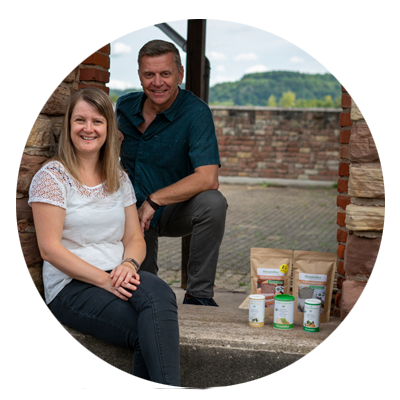
From those affected for those affected
We are Thomas and Michaela Zinser, founder of Histaminikus.
Because of the own histamine intolerance of Michaela and our son, we founded Histaminikus. The frustration does not find any suitable histamine food has spurred us to develop low -histamine food.
We would like to give you back a piece of quality of life. Feel free to look around with us.
Kind regards
Thomas and Michaela


